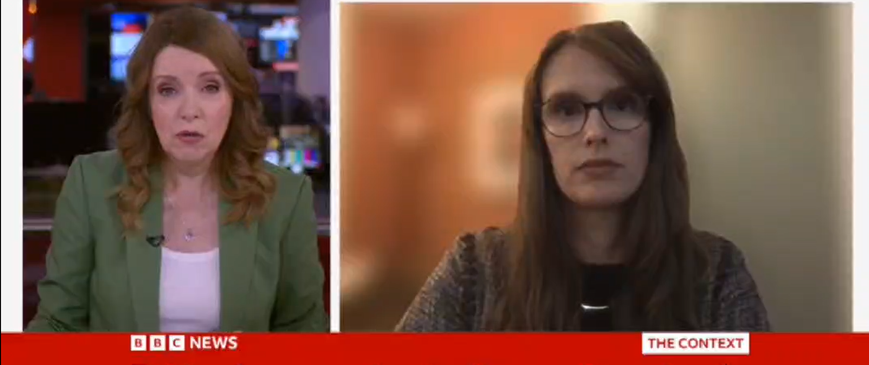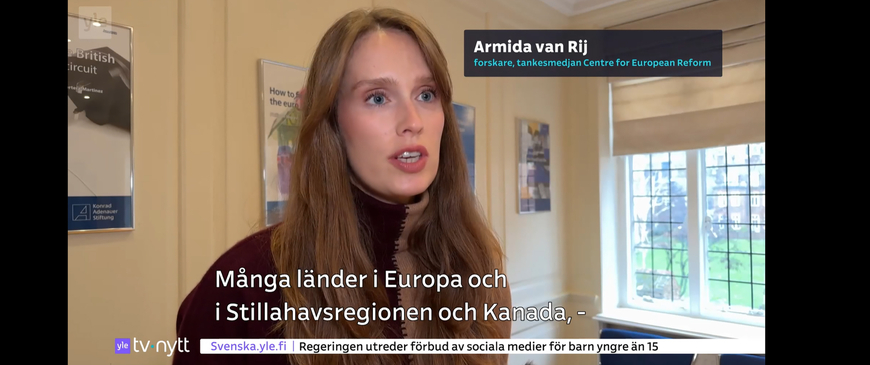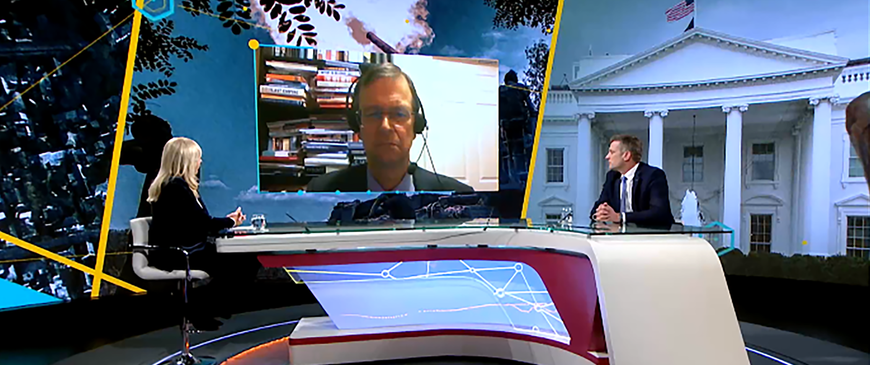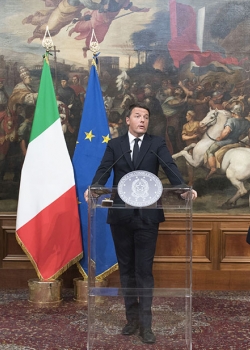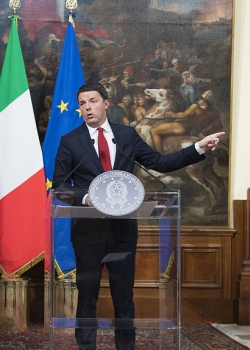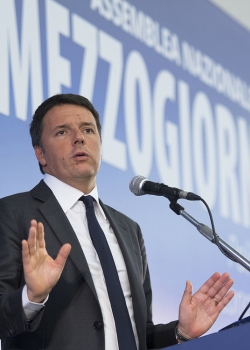Press
The future of the EU is at stake as Europe's leaders face a new fear: Voters
06 December 2016
The Washington Post
If elected, Le Pen has vowed to hold a referendum on French membership in the E.U. And if France pulls out, many pro-European advocates believe the entire project would fall apart. “If Marine Le Pen wins, that will comprise an existential shock to the E.U. and for stability in Europe,” said Simon Tilford, the deputy director of the London-based Centre for European Reform.
TOK FM: W Sądzie Najwyższym rozpoczęła się rozprawa ws. Brexitu
06 December 2016
Agata Gostyńska-Jakubowska talks to TOK FM about the ongoing Brexit case in the Supreme Court.
The impact of Italy's "No" vote is likely to be contained
05 December 2016
Prospect
The "No" vote in yesterday's referendum was expected by most observers. But its consequences are likely to be less dramatic than many feared.
Italy's referendum result is not another Brexit or Trump
05 December 2016
The Guardian
First Britain voted for Brexit. Then America voted for Trump. And now Italians have overwhelmingly voted to reject constitutional reform.
De kans dat de brexit niet doorgaat is nul
05 December 2016
Fd.nl
Wie het Britse brexitgetreuzel volgt, kan zomaar het gevoel bekruipen dat de eilandbewoners misschien wel nooit uit de Europese Unie zullen vertrekken.
Are we heading for a hard Brexit?
05 December 2016
Moneyweek
While it’s nice to know what the options are, the main thing is trying to find out what will actually happen.
Italian referendum: What the defeat of Renzi means for the EU and eurozone
05 December 2016
The Daily Express
Simon Tilford, deputy director of the Centre for European Reform (CER), said that an Italian referendum on the eurozone would lead to considerable instability in Europe. Mr Tilford said: “The act of calling that referendum would precipitate a crisis in Europe. It would embolden populist and anti-Europe parties elsewhere.”
Europe's populists target landmark victories in Italy, Austria
03 December 2016
Bloomberg
“We’re seeing populist parties challenge the establishment in one country after another,” Simon Tilford, deputy director of the Centre for European Reform in London, said in an interview. “Anything that causes doubt about political stability in Italy will unsettle investors.”
Year of electoral tests may end European Union as we know it
02 December 2016
The Guardian
Simon Tilford, of the Centre for European Reform think-tank, said the two big flashpoints for the union would be Italy’s constitutional referendum and France’s presidential election. “In Italy, if Renzi loses the referendum, can’t survive, and elections then return a government committed to a referendum on taking [the country] out of the euro … that could produce a real standoff,” Tilford said.
BBC Newsnight: Charles Grant on Boris Johnson's free movement comments
02 December 2016
Charles Grant talks frankly to BBC Newsnight about Boris Johnson's recent free movement comments to EU foreign ministers. (From 23 mins)
Downing Street to brief foreign media on Brexit
01 December 2016
Financial Times
Charles Grant, director of think-tank the Centre for European Reform, said: “The people in Brussels are even gloomier than is perhaps justified about Brexit because their only source of information at the moment is the British media.” Recent strident coverage from Britain’s biggest newspapers “surreptitiously erodes the residual goodwill that [other EU countries] feel towards us”, he warned.
Now two of the government's most senior figures have hinted the UK will continue EU contributions after Brexit
01 December 2016
City A.M
Centre for European Reform director Charles Grant said it could also help buy the UK some goodwill in its negotiations, and help it secure a preferential deal, in line with mentions of “Canada Plus”, seen in the notes of an MP's aide leaving Downing Street this week.
CNBC: Polls suggest 'no' vote will prevail in Italian referendum
01 December 2016
The political fallout of a 'no' vote in Italy's reform referendum would be less than it has been made out to be, says Luigi Scazzieri at the Centre for European Reform.
Judy Asks: Can Renzi salvage Italy?
30 November 2016
Carnegie Europe
A selection of experts answer a new question from Judy Dempsey on the foreign and security policy challenges shaping Europe's role in the world.
Ministers want controls on skilled and unskilled EU workers, say sources
30 November 2016
The Guardian
John Springford, director of research, at the Centre for European Reform, argued that it seemed likely that May would consider a preferential system for Europeans because if not they would face getting no more than a “basic free trade deal” from the EU-27. He also argued that restrictions on skilled workers were also likely if the prime minister wanted to achieve her goal to heavily reduce net migration to the tens of thousands.
CER podcast series: The economics of populism, episode three
30 November 2016
In this episode, Martin Hellwig and Agnès Bénassy-Quéré discuss ‘Has trade liberalisation and financial globalisation gone too far?’
Fillon gives Putin hope for new ally as sanctions zeal fades
29 November 2016
Bloomberg
“We will see how skilled Putin is at playing the Europeans and undermining the EU,” Charles Grant, the head of the Centre for European Reform said in an interview. “If Putin is clever, he will strengthen divisions among Europeans by being reasonable and avoid anything like an invasion to make it harder for them to take a tough line and maintain sanctions.”
Italy expected to retain key "broker" role on Brexit if Renzi quits
29 November 2016
City A.M
“[Italy] does not seek to profit from the negotiations or to punish the Brits as some other European capitals seem to be doing,” Centre for European Reform expert Luigi Scazzieri told City A.M.
A better Britain for the taking
28 November 2016
Financial Times
Improve the digital skills of Britons, more than “10m [of whom]s cannot send an email or shop online … universal digital literacy will be as important in this century as traditional literacy was 150 years ago”. (This echoes — or should echo for those who listen — Simon Tilford’s recent point that the UK lags behind badly behind even on traditional literacy.)
Britain's European partners take a hard line on Brexit
26 November 2016
The Economist
Charles Grant of the Centre for European Reform, a think-tank, says Brussels officials are dismayed by the apparent influence of right-wing Eurosceptics on Mrs May. The EU has also long hated Britain’s pick ’n’ mix approach.

